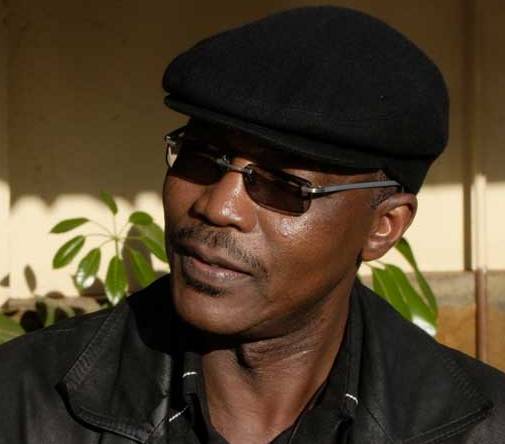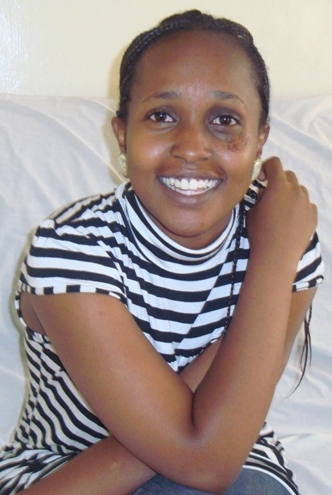By Ogova Ondego
Published June 23, 2007
 The first African Film Summit was held in Pretoria, South Africa, in April 2006, to chart the way forward for the audiovisual media sector in Africa and the African Diaspora. Almost 14 months later, little progress appears to have been made. OGOVA ONDEGO reports.
The first African Film Summit was held in Pretoria, South Africa, in April 2006, to chart the way forward for the audiovisual media sector in Africa and the African Diaspora. Almost 14 months later, little progress appears to have been made. OGOVA ONDEGO reports.
The Summit recommended the setting up of continental film organisations–African Audiovisual and Cinema Commission, Inter-African Film Distribution Consortium, Inter-African Film Production Consortium, and Inter-African Film Development Fund–to help develop the audiovisual media sector in the mother continent. And to ensure that these lofty objectives were fulfilled, English-speaking Africa (led by South Africa and Nigeria) successfully wrestled the leadership of the Pan African Federation of Filmmakers (FEPACI) from the stranglehold of their French-speaking counterparts accusing them of inaction.
RELATED:Manifestos and Declarations Difficult to Implement, Don Says of African Film Summit
The secretariat of FEPACI, too, was moved from Ouagadougou in Burkina Faso to Johannesburg in South Africa. This was the first time the secretariat and the leadership of FEPACI had been moved from Francophone to Anglophone Africa since its inception in 1969.
The new leadership, under South African activist secretary-general Seipati Bulane-Hopa, resolved to mobilise and coordinate the participation of filmmakers across Africa and the African Diaspora in Europe and the Americas in African audiovisual media sector.
Bulane-Hopa promised to “put gender on the agenda” to ensure that “œwomen become more conspicuous, more vocal and more active” on film matters.
Her priority, she said, was to establish a FEPACI secretariat, see to it that the film sector was an industry that employed and had confidence in its audience and that film schools in Africa collaborated, and ensure that women were in decision-making positions in the audiovisual media sector.
RELATED:Turning Filmmaking Into Formal Career in Africa No Easy Task
That the new African film business approach is yet to bear fruit may not be surprising if the interviews we did with various players after the ‘epoch-making’ meeting is anything to go by.
Asked how long it would take before the Pretoria Declaration was turned into policy, Eddie Mbalo, the CEO of the National Film and Video Foundation (NFVF) who also chaired the organising committee for the African Film Summit had said, “I am not familiar with the bureaucratic processes but we as South Africans will work on the document as soon as possible and present it to our Minister of Arts and Culture who put money in the project.”
 On his part, Lebone Maema, the African Film Summit project manager, had told ArtMatters.Info, “By the time of Sithengi in November 2006 we should have a response from the African Union on the recommendations and by February 2007, FESPACO would have a platform for feedback on the work that would have been done. We will endeavour to ensure that we expedite the process of implementing the Declaration but I think we have to be very realistic to say that other issues are beyond our control. I really wouldn’t want to say that we would have done this or that in three months as that would be unrealistic.”
On his part, Lebone Maema, the African Film Summit project manager, had told ArtMatters.Info, “By the time of Sithengi in November 2006 we should have a response from the African Union on the recommendations and by February 2007, FESPACO would have a platform for feedback on the work that would have been done. We will endeavour to ensure that we expedite the process of implementing the Declaration but I think we have to be very realistic to say that other issues are beyond our control. I really wouldn’t want to say that we would have done this or that in three months as that would be unrealistic.”
RELATED:Polio Disabled Her Feet, Not Her Creativity
We also spoke to Gambian Mbye Cham, the African academic who wrote the terms of reference for the various sessions at the African Film Summit on resolution implementation who, true to his profession, said, “Implementing resolutions passed is usually a gigantic battle.”
If you look at the history of resolutions, said the don at Howard University, there have been many manifestos and resolutions but not all of them have been fully implemented.
“If we can pick a specific time line, or a time target to turn the recommendations into concrete policies would be great. But at least the presence of the director of the social and cultural affairs division of the AU here is very helpful,” he said.
RELATED:Kenyan Media Ignore Live BBC Africa Radio Awards
It is hoped that the Bulane-Hopa team–Charles Mensah (President), Albert Egbe (Treasurer-General), and Regional representatives Abius Akwaake and Stephen Chigorimbo (Southern Africa), Magda Abdi and Jane Murago-Munene (Eastern Africa), Camille Mouyeke and Bassek Bakhobio (Central Africa), Madu Chikwendu and Cheikh Ngaido Ba (Western Africa), Liazid Khodjo and Jihan El Tahri (Northern Africa), Marc Nekaitar (Diaspora Europe), and Sarah Maldoror (Diaspora Americas)–are doing their best to assist players in the African filmmaking business to realise their dream.
 Below we present excerpts from the interview OGOVA ONDEGO conducted with Eddie Mbalo, the CEO of the NFVF who also presided over the organising committee of the African Film Summit.
Below we present excerpts from the interview OGOVA ONDEGO conducted with Eddie Mbalo, the CEO of the NFVF who also presided over the organising committee of the African Film Summit.
What was the objective of the African Film Summit?
To look at the protocols within the African Union that encourage the organisation and establishment of the audio-visual media policies on the continent and to create the platform for Africans to interact among themselves in determining their own future.
RELATED:Bedroom Matters Could Hinder Integration of East African Community
And would you say these objectives were achieved?
Yes. Everyone tells me that this was the first time in 25 years that people have come together and agreed on a number of positions that can be presented to the African Union in order to put the issues of cinema on the agenda.
How do these achievements differ from the initial expectations of the organising committee?
My expectation has always been that people want to cooperate and I think everyone wants to achieve the same goals; we may only differ on tactics and how to do things. There is consensus that we need to be doing things in a certain way. Everyone agrees that FEPACI is a sole-representative of the African filmmakers. Now is the time to ensure that the organization is strengthened in the interest of all the filmmakers and not individuals.
It is felt that there was a deliberate attempt to silence film festivals despite the important role they play in cinema exhibition in Africa. Is this true?
If there was no direct discussion of festivals it was an omission on our part but everything was covered in the end.
RELATED:Pioneer Sudanese Filmmaker Wins Lifetime Achievement Award
 With few cinemas in Africa, it’s festivals that ensure films are seen. Festivals are central to the issue of distribution and must be recognised as such.
With few cinemas in Africa, it’s festivals that ensure films are seen. Festivals are central to the issue of distribution and must be recognised as such.
I don’t think it’s fair to compare the two. Yes, it is part of the distribution process; festivals play a very important role.
How about the issues of women, children and the elderly: were they addressed in the African Film Summit?
We believe that cinema affects everyone across the board. Yes, we would like to see more women represented in the filmmaking process. We want to produce films that are sensitive to children’s issues. We would like to ensure that the elderly are taken care of in the distribution process and so forth. However we did not have a specific line item agenda on those issues. I think we were dealing with broader issues that directly affect the filmmaker.
RELATED:Women Consolidate Their Supremacy in Eastern Africa’s Filmmaking Sector
What is the way forward after this first, well, is it the first?, African film summit?
Yes, it is the first African Film Summit. The next step is to take what came out of here, craft it into a document that then gets presented to the Minister of Arts and Culture of South Africa and then the Heads of State within the African Union.
How long will it take before the document is acted upon by the various states?
I am not familiar with the bureaucratic processes but we as South Africans will work on the document as soon as possible and present it to our Minister of Arts and Culture who put money in the project.
Is there a hidden agenda by South Africa in hosting this meeting?
I think people need to accept our good faith; we are Africans. We take initiatives and people can’t blame us for this.
RELATED:Dictionary of African Filmmakers Raises More Questions Than Answers
How can South Africa invest its resources in such a grand gathering without expecting anything back?
We have to get Africans talking to each other. We as Africans have to be able to do things ourselves or otherwise our agenda is written somewhere else. The South African president is driving the whole African Renaissance that guides us. As long as what we do is in line with the broader continental interest, we will do it.
Who were the main partners on this African Film Summit initiative?
We as the National Film and Video Foundation worked in partnership with the Department of Arts and Culture, and FEPACI.




